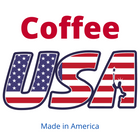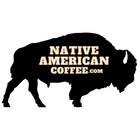Remarkably, few Jamaicans enjoy their own coffee, as the nation learned to love its tea long ago, when it was still a British colony. Blue Mountain coffee grows in the lush, cool and wet mountains of Jamaica. The actual growing region is restricted by the Coffee Industry Regulation Act, which restricts the Blue Mountain coffee name from being placed on any coffee grown outside of the parishes of Saint Andrew, Saint Thomas, Portland and Saint Mary. Known both as Jamaican Blue Mountain Coffee and just Blue Mountain Coffee, the beans cultivated on the slopes of the highest mountain ranges in the Caribbean are also used as the flavor base for Tia Maria coffee liqueur. The soil here is extremely rich with terrific draining. Even when it's not raining elsewhere on the island, the rain continues to fall in the mountains, often for weeks at a time. The result is Arabica beans with a flavor like none other in the world. It's really something that has to be enjoyed first hand to be appreciated, as it's difficult to understand why Blue Mountain coffee products are so expensive otherwise.
It's easy to see why Blue Mountain coffee is so popular. If you're lucky enough to tour the Blue Mountain coffee region, you'll be impressed with the care the beans receive. Once harvested from the coffee trees, the beans are shelled and then dried in the dry heat of Jamaica. When they are dried, they are hand sorted by the Jamaican ladies who work in open-air shelters, quickly grading the beans as they sing traditional songs and talk in the singsong of Jamaican conversation. Blue Mountain coffee is divided into several grades. Blue Mountain Coffee No. 1: This is the very best bean, with maximum defects of just 2%. They are large, blue green in color and have an intense aroma. Blue Mountain Coffee No. 2: These are slightly smaller beans, but no less flavorful or full bodied. Blue Mountain Peaberry: These are single seed berries that are the smallest. If you're ever lucky enough to visit Jamaica, try to arrange a trip to a local supermarket. Often you can find Blue Mountain Coffee No. 1 and No. 2 at relatively low prices, certainly far less than you'll find them in the U.S. or at the tourist shops around Jamaica and at the airports.
"We Serve a Smile With Every Sip!"™
Blue Mountain coffee is one of the rarities in the coffee world, flavorful, rich, deep and silky smooth from first sip to last. Small wonder why Blue Mountain coffee is one of the true wonders of the coffee world. If you are looking to enjoy some Blue Mountain coffee, know that it isn't cheap. Part of the reason is that the Japanese discovered this delightful brew long ago, accounting for 80% of all the coffee grown there. By comparison, the U.S. is the second largest importer at 8%.






